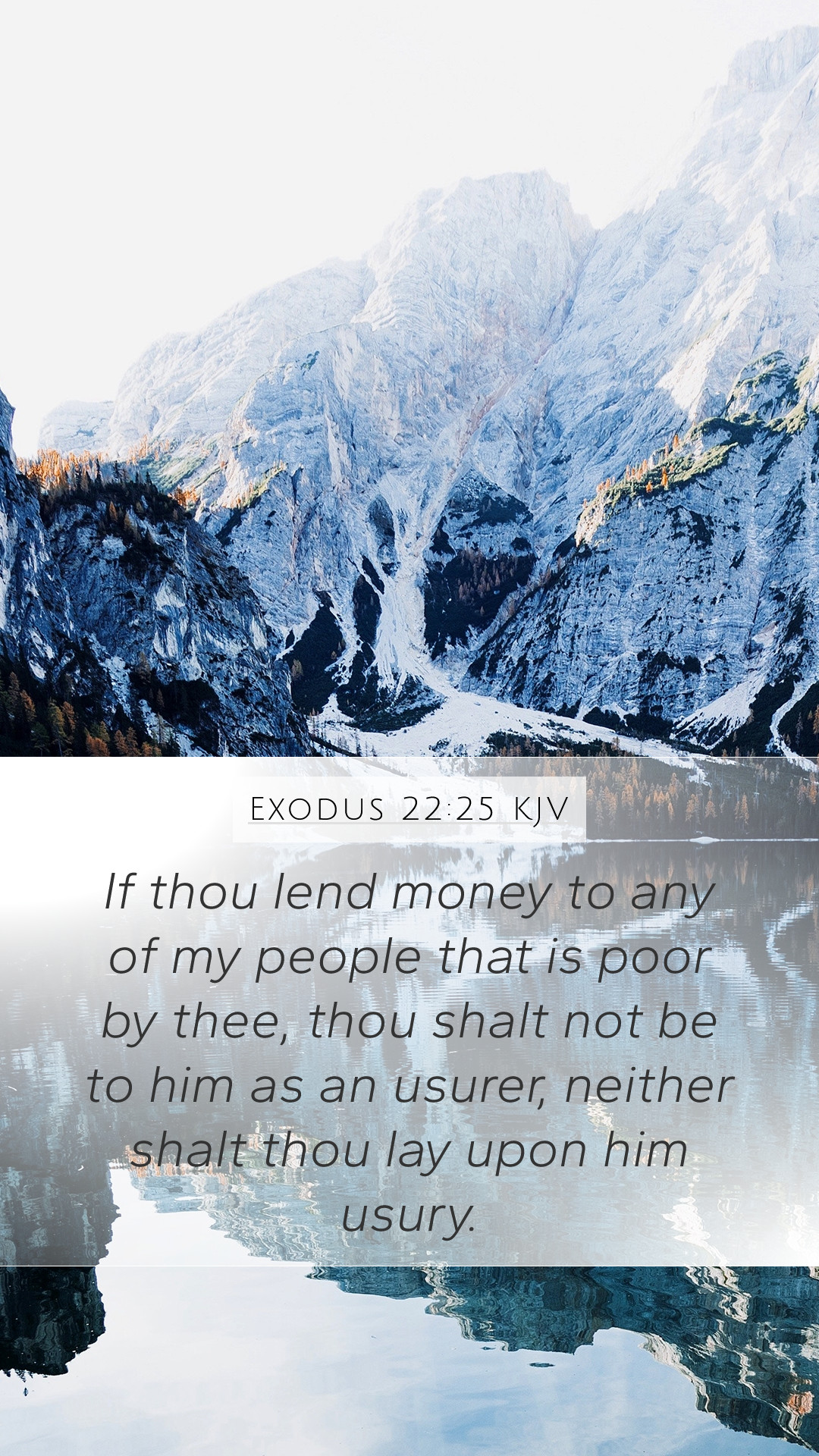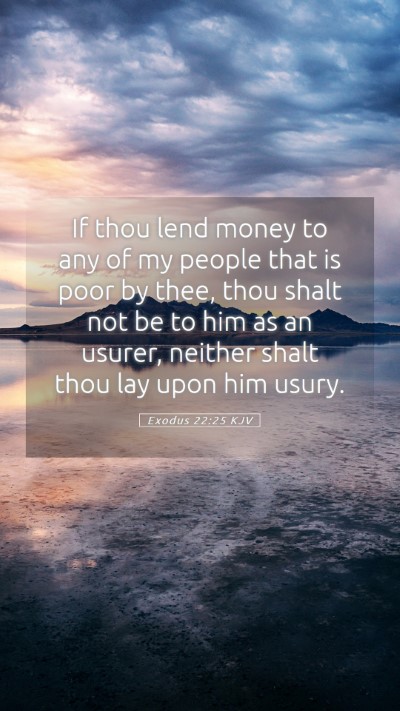Understanding Exodus 22:25 - Bible Verse Meaning and Commentary
Verse Context: Exodus 22:25 states, "If you lend money to any of my people that are poor by you, you shall not be to him as a usurer, neither shall you lay upon him usury." This verse is a part of the Mosaic Law focusing on social justice, highlighting ethical financial practices.
Summary of Meaning
This verse emphasizes the importance of fairness and compassion in financial dealings, particularly towards the poor. It forbids charging interest or exploiting those in need, promoting a sense of community and support among individuals.
Bible Verse Interpretations
Insights from public domain commentaries shed light on various aspects of this verse:
- Matthew Henry: Henry comments on the ethical implications of lending to the poor. He stresses that those with abundant resources have a duty to help those in need without taking advantage of their circumstances.
- Albert Barnes: Barnes highlights the prohibition of usury in this context, interpreting it as a divine directive to establish a community where love and mutual aid prevails, thereby reflecting God’s justice.
- Adam Clarke: Clarke underscores the cultural context of the time, noting that lending practices were often exploitative, and this verse serves to correct such injustices. He emphasizes the spiritual dimension, suggesting that lending should always be accompanied by kindness and a generous spirit.
Key Themes in Exodus 22:25
- Compassion: The verse underscores the need for compassion towards those who are in financial distress.
- Justice: It promotes justice in financial transactions, ensuring that the less fortunate are not further burdened.
- Community Support: The teachings encourage creating a supportive community where individuals look after one another's well-being.
Cross References
- Leviticus 25:36-37: Discusses the prohibition of charging interest on loans to fellow Israelites.
- Deuteronomy 15:7-8: Encourages generosity towards the poor and the proper attitude in lending.
- Psalm 15:5: Speaks about the righteous person who does not take interest from others.
Application of the Verse
Modern readers can draw multiple lessons from Exodus 22:25. The call to aid those who are struggling financially remains relevant today, informing ethical views on lending and financial assistance. Here are a few applications:
- Ethical Lending: Implementing fair practices in our financial dealings, avoiding exploitation.
- Community Involvement: Engaging in community support and outreach programs for the economically disadvantaged.
- Spiritual Reflection: Recognizing financial generosity as an act of faith that reflects God's love and justice.
Conclusion
Exodus 22:25 is a powerful reminder of the ethical responsibilities individuals have towards each other, especially in times of need. Understanding such verses can enhance our Bible study insights and help foster meaningful discussions in Bible study groups. By interpreting and reflecting on Scriptures like this, we can deepen our Bible verse understanding and more effectively apply its teachings in our daily lives.


